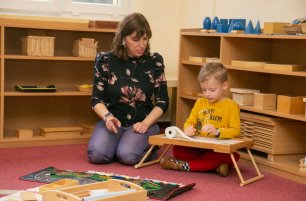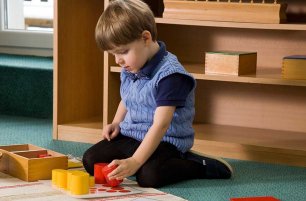Dealing with Emotions Through Art
“Social and emotional learning(SEL) is the process through which children and adults understand and manage emotions, set and achieve positive goals, feel and show empathy for others, establish and maintain positive relationships, and make responsible decisions.”
One of new roles that IMSP has added this year is the Expressive Art Specialist. This role is currently held by Ms. Kathleen who continues to teach self-expressive and artistic concepts in art and drama class and now also supports guided social emotional learning. Maybe you’re thinking ... what is social emotional learning?
Sometimes situations arise where a student may need further individual support, awareness and/or tools to help deal with personal challenges.That’s where our Expressive Art Specialist comes in! The aim of the role is to help guide the child by giving them the skills needed to manage their emotions and make decisions that support the best version of themselves.

Sometimes Ms.Kathleen works on empathy to help a child develop an awareness and understanding of others’ feelings and perceptions. At times they will work on conflict resolution, which focuses on the need to be heard, understood, and communicate in a way focused on solutions and working together. Other times, they may work on self-esteem, growth mindset or naming and exploring their feelings so students can better understand themselves.
The goal of these sessions is always to find the child’s strengths, values, and belief system as well as explore the root of where the child needs additional support.
“Let me first understand you. When I understand then I can help.”
The children need to feel safe and free to be able to express anything.Trust needs to be established before any meaningful work can be done. Without trust and understanding, the child can easily reject any guidance from the adult. The sessions are all about the child, not to get them somewhere, rather to help them feel seen and heard and allow them to feel the importance of SEL, as they further their personal growth. It is important that the child feels the support of who they are in order to bring about long-term change.
After the first session, Ms.Kathleen will develop a plan, usually a creative art project or an activity to help internalize these concepts and develop personal tools and greater awareness so they can better manage the situation or their emotions more resourcefully. Neuroplasticity shows us these lessons need to be repeated to become the new way of responding. Communication between Ms.Kathleen, the parents, and the teachers is critical for that everyone can be on the same page and support the child as a united community.
Want to learn more? Read our next article:







